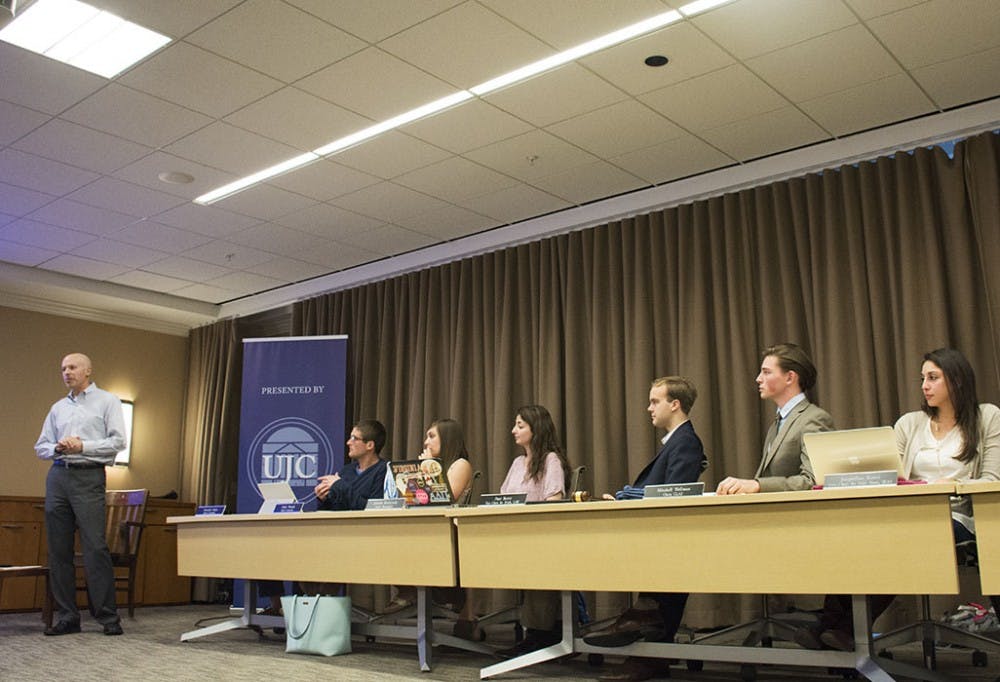The University Judiciary Committee had its general body meeting Sunday, where members discussed hazing at the University and the upcoming UJC Awareness Week.
Kimberly Flintsch Medina, a third-year Commerce student and UJC senior educator, updated the general body on the events that will take place during UJC’s Awareness Week, which runs Oct. 23-28.
UJC is collaborating with various University groups, including the Alcohol and Drug Abuse Prevention Team, United for Undergraduate Socioeconomic Diversity, Minority Rights Coalition, Sustained Dialogue and the Honor Committee. Co-led activities include tabling, round-table discussions, a political town hall and a mock trial.
“Hold yourself to a higher standard” is the Awareness Week’s slogan. UJC Chair Mitchell Wellman, a fourth-year College student, encouraged members to be responsible for their own behaviors as well as spreading awareness to the student body.
Members also heard from Marsh Pattie, assistant vice president for student affairs and associate dean of students. Pattie served as a UJC judge as a University student and spoke highly about the committee’s function.
“It was a powerful experience [to serve as a judge],” Pattie said. “I am [one] of the only deans, probably in this country, that [does] not discipline students. This committee does.”
Pattie then gave a presentation to members about the University’s procedures on hazing but declined to give specifics about the current hazing lawsuit filed against the University by former football player Aiden Howard. Pattie went on to emphasize that hazing is more than physical intimidation.
“There are incidents where psychological effects could have huge impacts on people,” Pattie said. “The concept of hidden harm comes into play.”
Aside from University policy, Virginia has laws prohibiting hazing, Pattie said. State laws focus on physical hazing, and all higher education institutions are required to report cases of physical harm to the state.
The group then discussed ways to recognize and report hazing.
When an allegation of hazing is reported, the University investigates and determines whether the allegation is serious enough to notify the Commonwealth Attorney. Once the case goes to local law institutions, the University does not always have updates on the case, as the police are not required to report the process.
“[The whole investigation] is very challenging for people who are involved and we are concerned of their well-being,” Pattie said. “We try to make people feel supported and understand the truth.”
Correction: This article previously stated Pattie served as a UJC judge for 10 years.







